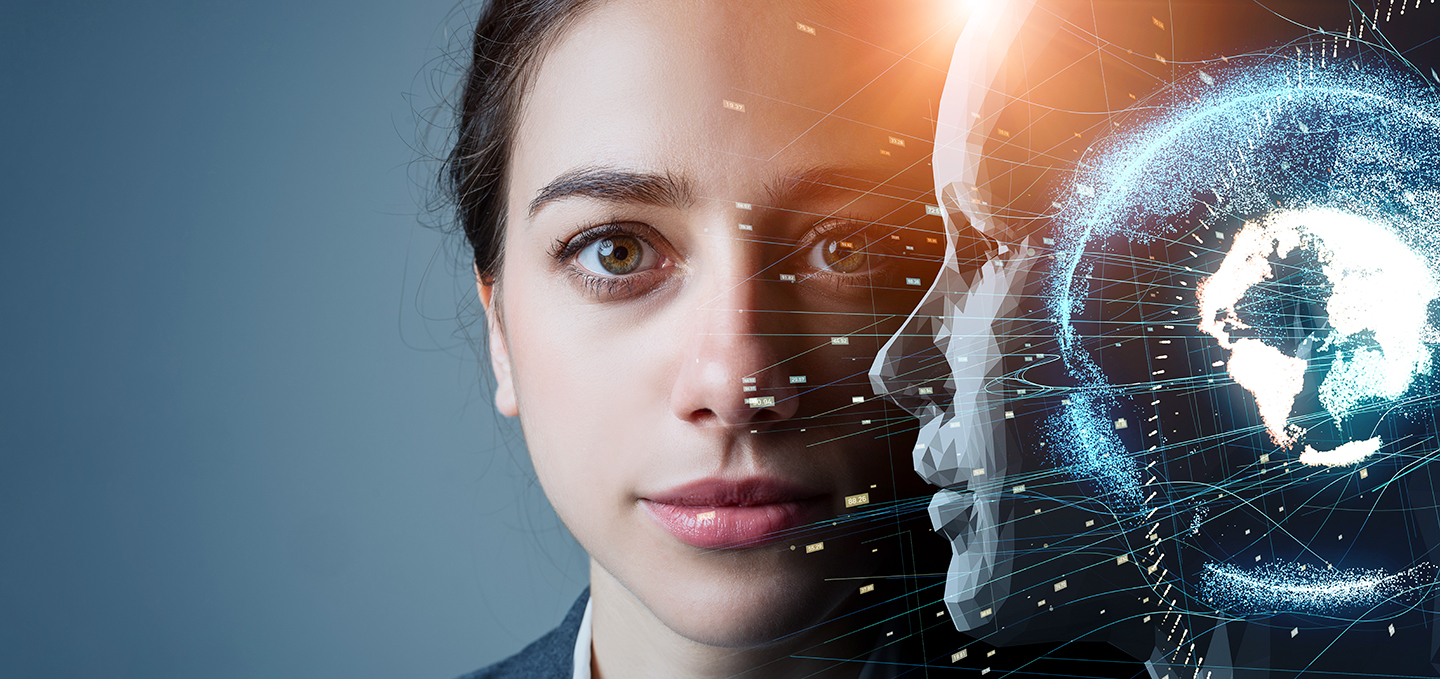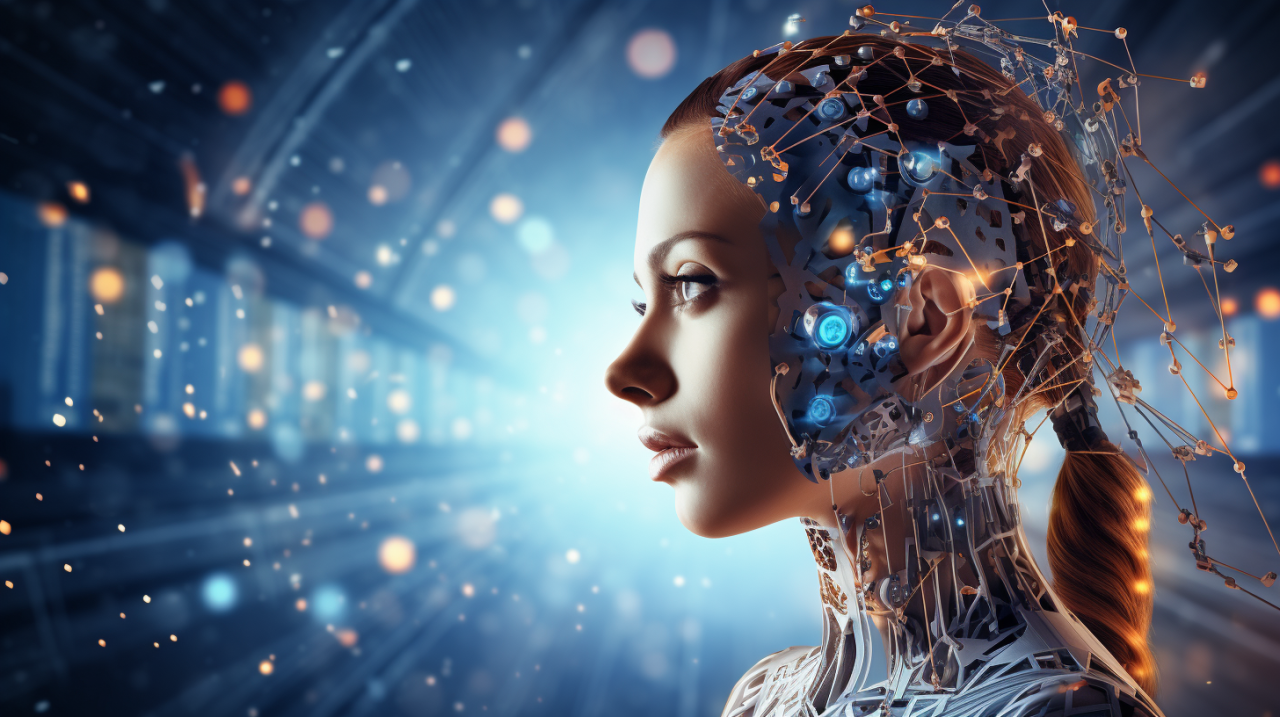From Information to Imagination: Exploring the Influence of Generative AI in the Area of Artificial Knowledge
With the development of generative AI, a brand-new age is arising, one that discovers the crossway of information and creativity. By using the power of generative AI, we can unlock the capability for machines to produce creative and original material. Join us as we discover the fascinating trip from information to creativity, and uncover the profound effect generative AI can have on the future of synthetic knowledge.
The Surge of Generative AI
Generative AI has become a revolutionary field in synthetic knowledge, changing the way makers create brand-new material and connect with the world. In the last few years, there has actually been a substantial surge in the popularity and application of generative AI techniques. These methods make it possible for devices to autonomously produce brand-new and one-of-a-kind material, such as pictures, songs, and message, without explicit human input.
One of the crucial variables adding to the rise of generative AI is the availability of varied and large datasets. With the development of the internet and the spreading of digital content, large amounts of data are now available to AI systems. This abundance of data offers the required raw material for training generative AI versions, permitting them to discover and simulate human creative thinking.

In addition, the enhanced computational power and the accessibility of specialized equipment, such as graphical processing systems (GPUs), have actually played an important role in the increase of generative AI. These innovations have actually empowered AI systems to process and examine substantial quantities of data, enabling them to create web content quickly and effectively.
Changing Creative Industries
The expanding capabilities of generative AI, fueled by improvements in deep learning algorithms and computational power, have caused a transformative influence on creative industries. This innovation has reinvented the way innovative experts function, opening brand-new opportunities and pressing the limits of human creativity.
Generative AI has enabled artists to explore new worlds of imagination by offering them devices that can create unique and unique web content. For instance, in the area of visual arts, generative AI algorithms can examine existing art work and produce new items based upon the design and qualities of the input. This not just saves time however also expands the imaginative opportunities, enabling artists to trying out various styles and techniques.
In the music sector, generative AI has additionally had a considerable impact. It can make up new melodies and consistencies, producing songs that was previously unthinkable. This technology can even mimic the design of prominent artists, allowing the development of brand-new tracks that seem like they were composed by musicians who have actually long died.
In addition, generative AI has actually discovered applications in other creative areas, such as fashion and design. It can produce new clothing designs, indoor formats, and building concepts, offering developers with a riches of inspiration and increasing the innovative procedure.
However, while generative AI provides amazing chances, it also raises honest concerns and challenges standard ideas of authorship and creativity. As this innovation remains to develop, it is vital to strike an equilibrium between human imagination and the abilities of AI, making certain that the last output reflects the intentions and creative vision of the human designer.
Enhancing Human-Computer Cooperation
Cooperation in between humans and computers is being enhanced via the integration of generative AI, resulting in a brand-new age of innovative opportunities. With the innovations in artificial knowledge, human beings are now able to function very closely with computer system systems to attain end results that were formerly unbelievable. Generative AI, a subset of AI that concentrates on developing new material, has actually changed the way human beings and computer systems work together.
Generative AI allows computers to generate content, such as photos, songs, and message, based on patterns and instances supplied by people. This collaboration allows human beings to take advantage of the computational power of AI systems to improve their creative procedures. For instance, musicians can utilize generative AI to produce new aesthetic ideas or explore various designs, while artists can create one-of-a-kind make-ups by working together with AI-generated melodies.
Additionally, generative AI can aid in tasks that require huge amounts of information processing, such as information analysis and pattern click to investigate acknowledgment - generative ai company. By integrating AI systems right into the partnership process, people can leverage the computational capacities of AI to evaluate intricate datasets and essence purposeful insights
Nevertheless, to ensure effective cooperation between computer systems and humans, it is essential to establish a clear understanding of the functions and duties of each celebration. Humans have to supply the necessary advice and expertise, while AI systems can help in the imaginative process by creating opportunities and options. This partnership in between human beings and computers opens up new methods for development and imagination, pressing the boundaries of what is possible in different areas.
Ethical Effects of Generative AI
As we explore the moral implications of generative AI, it emerges that this revolutionary modern technology raises significant problems and considerations. Generative AI systems have the capability to produce, produce, and resemble human-like material, such as images, video clips, and message. While this has opened new opportunities and opportunities in numerous areas, it has actually also stimulated discussions regarding the prospective abuse and moral dilemmas connected with such innovation.
One of the main issues is the capacity for deepfakes, which are controlled or produced media that can deceive and misguide individuals. With generative AI, it becomes easier for destructive stars to develop persuading deepfakes, resulting in misinformation, reputational damage, and even political manipulation. This poses a threat to the trust we position in electronic media and can have significant consequences for cultures and people.
One more honest consideration rotates around the concern of intellectual property. Generative AI systems can develop initial material that may infringe upon copyright legislations or increase questions concerning ownership and attribution. Determining the civil liberties and obligations in such scenarios comes to be a complex job, particularly when AI-generated content is tantamount from human-created material.
Moreover, generative AI has the possible to continue and amplify existing prejudices and discrimination existing in the training data. If the information utilized to educate these systems consists of biased info, the generated material may show and perpetuate those predispositions, leading to unjust or discriminatory results.
Along with these issues, there is additionally a requirement to consider the effect of generative AI on protection, privacy, and consent. AI systems can collect, assess, and utilize huge quantities of individual information, resulting in prospective violations of personal privacy and problems about information defense. The permission of individuals whose data is utilized to train and improve these systems must be carefully dealt with to guarantee honest methods.

Future Prospects and Obstacles
With improvements in generative AI technology, the future holds both encouraging prospects and countless challenges to get over. The potential applications of generative AI are substantial and varied. Among the most interesting leads is the capability to generate realistic and tailored content throughout various domains, such as songs, literature, and art. This This Site could reinvent imaginative industries by allowing AI systems to produce cutting-edge and unique works. Furthermore, generative AI has the possible to boost human-computer interaction by creating more intelligent and receptive virtual assistants and chatbots.

Another difficulty is the need for advanced algorithms and computational power to enhance the top quality and effectiveness of generative AI systems. The existing constraints in training time and computational resources prevent the widespread adoption of generative AI in real-world applications.
Verdict
In conclusion, the increase of generative AI has actually considerably influenced the area of expert system. It has actually changed creative markets by making it possible for the generation of ingenious and unique content. Additionally, generative AI has actually boosted human-computer collaboration, enabling a lot more efficient and effective analytic. Nonetheless, ethical implications surrounding generative AI needs to be thoroughly taken into consideration and resolved. Looking in advance, future prospects and challenges hinge on additional checking out the possibility of generative AI and locating an equilibrium in between imagination and honest factors to consider.
Generative AI has arised as a revolutionary field in synthetic knowledge, transforming the way equipments produce new content and communicate with the globe. generative ai company.Generative AI has actually allowed artists to discover new worlds of creative thinking by using them tools that can create unique and distinct material. Generative AI, a subset of AI that concentrates on producing brand-new material, has changed the method humans and computer systems collaborate
Generative AI systems have the capacity to produce, generate, and resemble human-like content, such as photos, video clips, and text. Generative AI systems can develop initial content that might infringe upon copyright laws or elevate questions concerning ownership and acknowledgment.